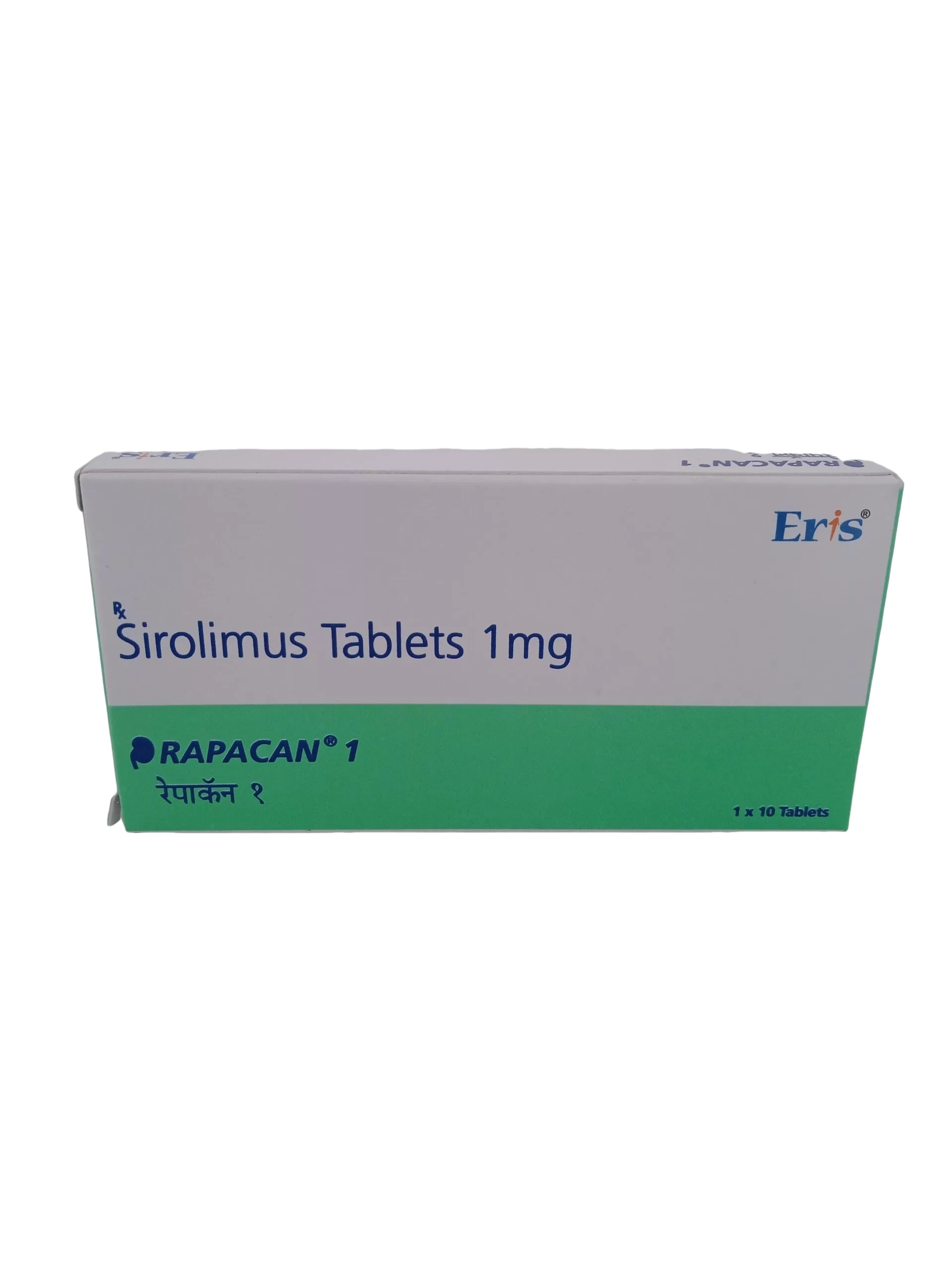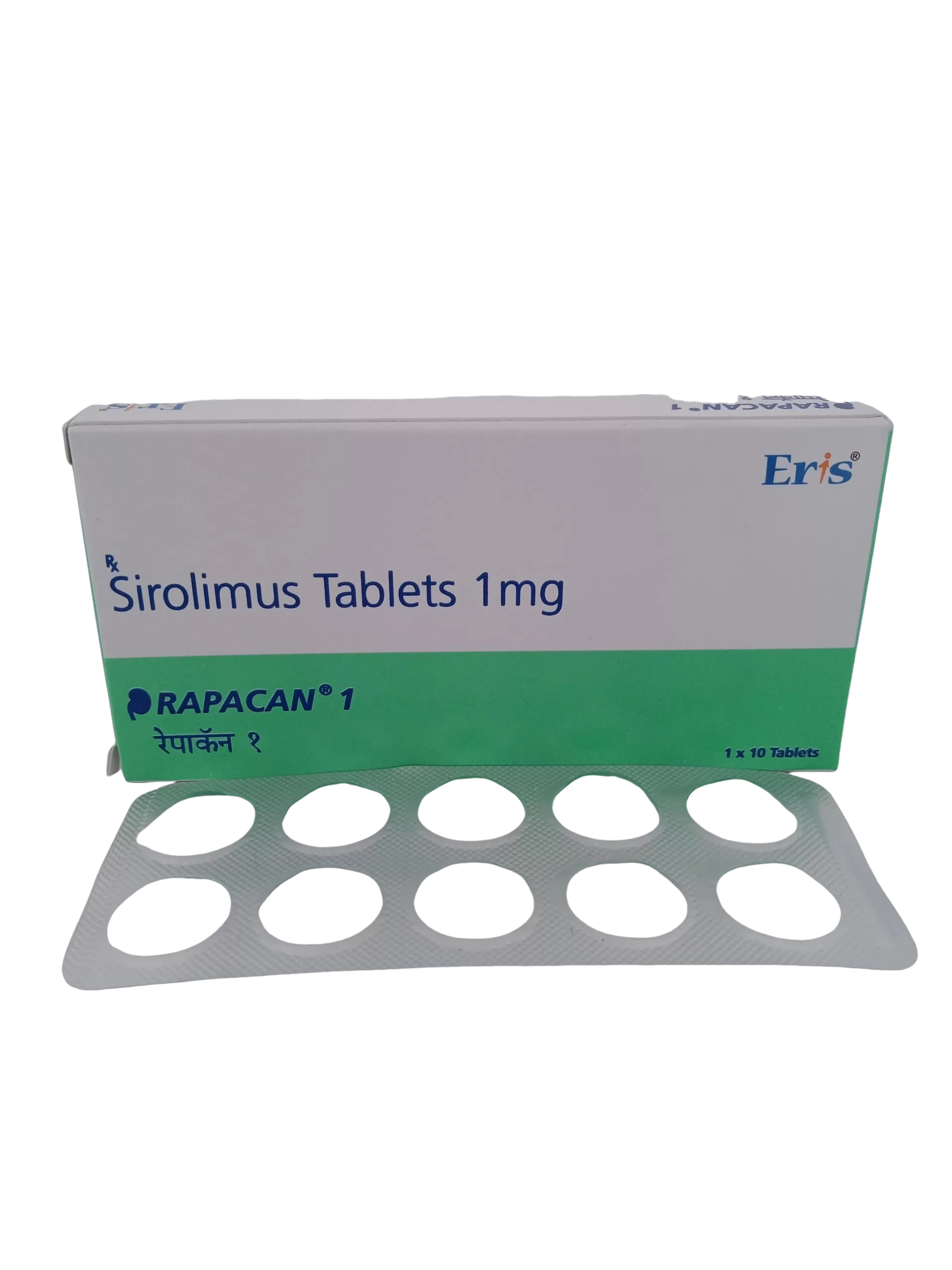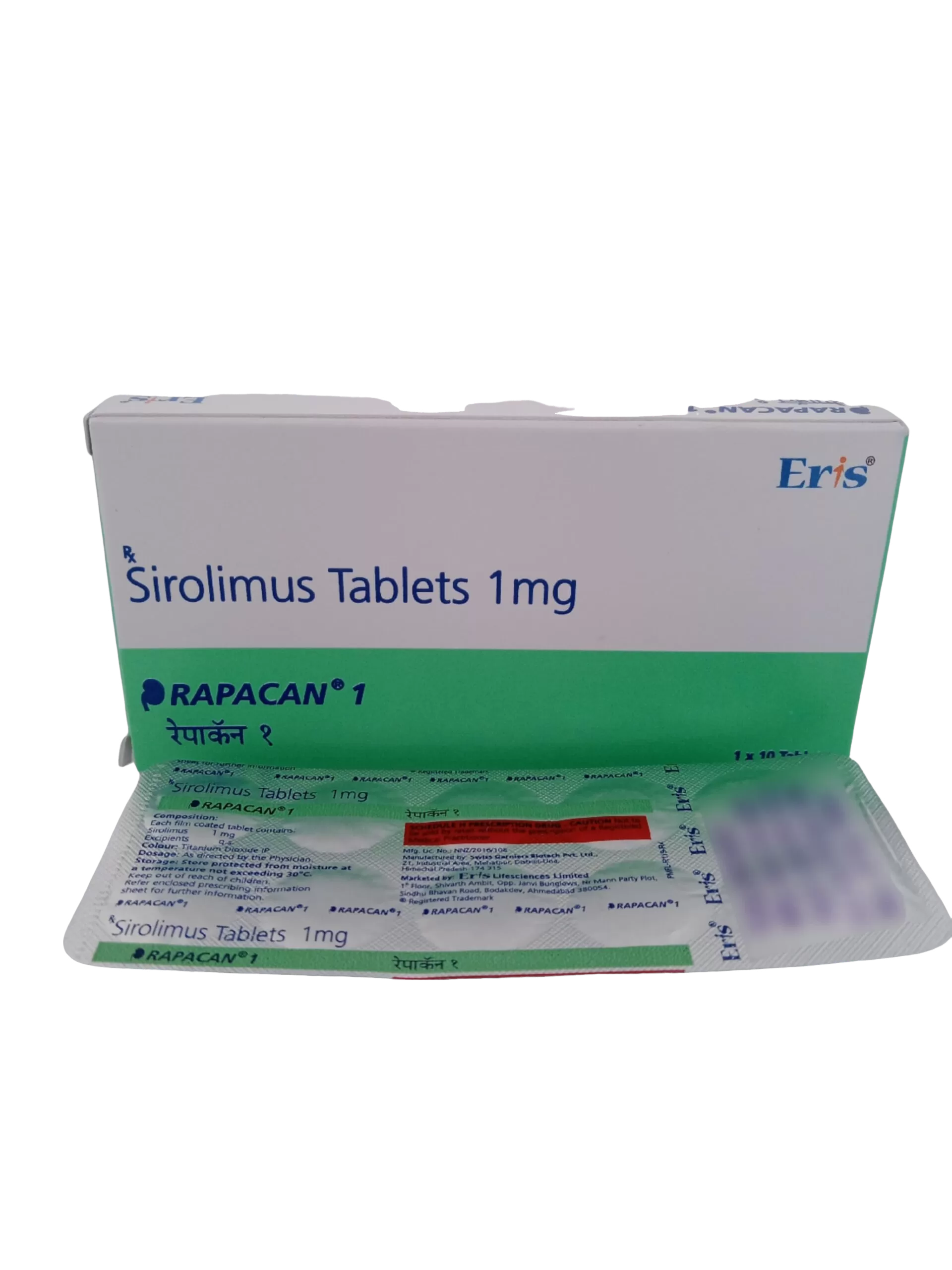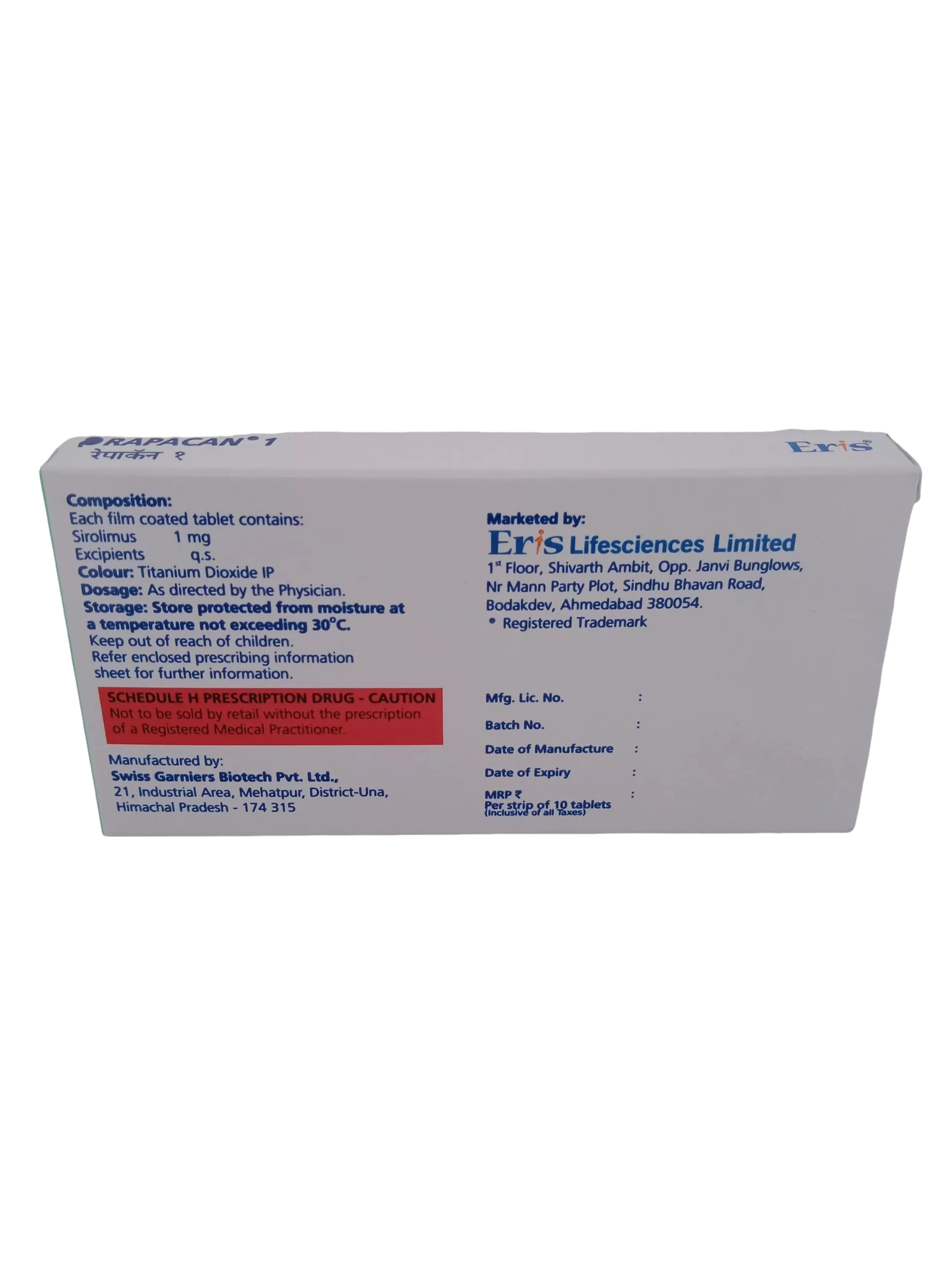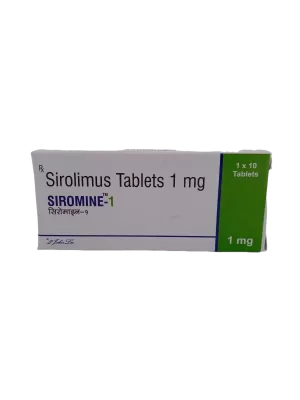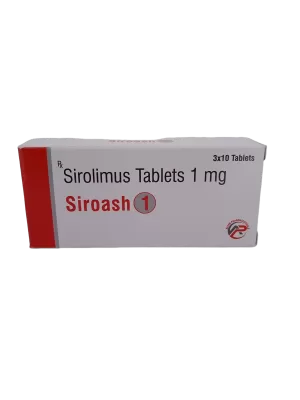RAPACAN 1 MG – 10 TABLETS: Comprehensive Guide and Benefits
Introduction to RAPACAN 1 MG – 10 TABLETS
Rapacan 1 mg (Sirolimus) – Essential Immunosuppressant for Kidney Transplant Rejection Prevention
Rapacan 1 mg is a crucial immunosuppressant medication containing the active ingredient sirolimus. It plays a vital role in preventing kidney transplant rejection by suppressing the immune system, thereby reducing the risk of transplant failure and promoting successful kidney transplantation outcomes.. This product is carefully formulated to provide effective results while ensuring safety and ease of use.
Key Benefits of RAPACAN 1 MG – 10 TABLETS
Effective Action – Works efficiently to deliver intended results.
High-Quality Ingredients – Formulated with trusted components for maximum effectiveness.
Safe Usage – Designed for optimal use with minimal side effects.
How RAPACAN 1 MG – 10 TABLETS Works
The active ingredients in RAPACAN 1 MG – 10 TABLETS work by targeting key mechanisms in the body to provide the desired benefits. It is widely recommended for its efficacy and safety.
Usage Instructions for RAPACAN 1 MG – 10 TABLETS
Dosage – Follow the prescribed dosage or as directed by a healthcare professional.
Administration – Best taken at the recommended time to maximize effectiveness.
Precautions – Avoid exceeding the recommended dose and consult a doctor if necessary.
Medicinal Advantages of RAPACAN 1 MG – 10 TABLETS
Reliable Results – Proven to deliver desired outcomes.
Supports Health – Helps improve well-being with consistent use.
Minimal Side Effects – Designed to reduce adverse reactions.
Off-Label Uses of RAPACAN 1 MG – 10 TABLETS
While primarily used for its main purpose, some users have reported additional benefits in related health areas. Consult a healthcare provider for more information.
Expert Advice for Optimal Use
Consultation – Always check with a doctor before use, especially if you have existing health conditions.
Safe Storage – Keep in a cool, dry place away from children.
Avoid Misuse – Use only as directed to prevent complications.
Storage Instructions
Temperature – Store at room temperature, away from heat and moisture.
Safety Precautions – Keep out of reach of children and pets.
Frequently Asked Questions (FAQs)
Q: How soon does RAPACAN 1 MG – 10 TABLETS take effect?
A: The effects vary but are generally noticeable within a reasonable timeframe.
Q: Can I use RAPACAN 1 MG – 10 TABLETS daily?
A: Usage frequency should be based on professional medical advice.
Q: Is RAPACAN 1 MG – 10 TABLETS safe for pregnant or breastfeeding women?
A: Consultation with a healthcare provider is recommended before use.
Q: Are there any side effects?
A: Most users experience minimal or no side effects when taken as directed.

